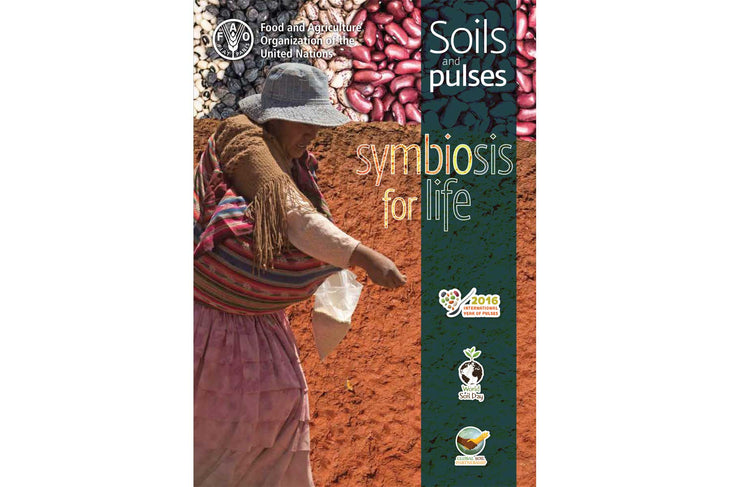- Shop
- Recipes
- About
- Sign in
-
Shop
-
Recipes
-
About
by Nick Saltmarsh December 05, 2016
| Every year on 5th December, World Soil Day celebrates the importance of soil in the natural world and in sustaining human wellbeing. In 2016, the UN International Year of Pulses, the day's theme is the relationship between soil and pulses. Pulses depend on soil to grow but also contribute to the health and vitality of soil, helping it to sustain life. |
In 2016, the UN International Year of Pulses, the theme for World Soil Day is "Soils and Pulses: Symbiosis for Life". The day focuses on the contributions that both soil and pulses can make to the challenges of feeding the world and combating climate change, especially together.
"Soils and pulses embody a unique symbiosis that protects the environment, enhances productivity, contributes to adapting to climate change and provides fundamental nutrients to the soil and subsequent crops"
José Graziano da Silva, Director-General of the UN Food and Agriculture Organisation (FAO)
All pulses are the fruit of nitrogen-fixing leguminous plants that benefit soil health by adding the fertility of nitrogen "fixed" from the atmosphere. Cereals grown after a pulse crop on average yield 1.5 more tonnes per hectare, equivalent to the effect of 100kg of nitrogen fertiliser without the heavy energy burden of fertiliser production. Pulses can also help to restore the health of degraded soil by encouraging carbon sequestration and cleaner water filtration.
The world is currently losing soil 10 to 20 times faster than it is replenished. Acidification, salinization, erosion and urbanisation are all contributing to the degradation and loss of soil. Pulses can help counter this worrying trend, while also helping to address hunger, food insecurity, malnutrition and declining rural incomes.
To mark the 2016 World Soil Day's focus on soil and pulses, the FAO has published Soils and Pulses, Symbiosis for Life, a comprehensive report on the complementary importance of soil and pulses for food security and nutrition. Soils and Pulses, Symbiosis for Life is available to download free of charge direct from Hodmedod's website.

January 23, 2026
Hodmedod's pop-up Shop! will be open again on Saturday 7th February alongside Barleybird's annual Seed Swap.
August 14, 2025
Hodmedod co-founder Josiah Meldrum describes how Hodmedod emerged from the question of whether we can reliably and sustainably feed ourselves.
August 13, 2025
Our new organic naked fava beans and yellow peas can be used just like split beans and peas - there are just a few intact whole pulses that will generally split in half when soaked and cooked. But why are some of our beans & peas now naked?
Get in touch at hello@hodmedods.co.uk or 01986 467567
Things sometimes go wrong but we'll always do our best to put it right. Please contact us to let us know if there's any problem with an order.
For further details please see our Terms of Service, Returns, Refunds and Exchanges Policy and Privacy Policy.
Sign up for our latest news, recipes, offers & more…
By signing up, you agree to receive marketing emails. Please see our Privacy Policy for more details.
Registered in England and Wales as Hodmedod Ltd, The Studios, London Road, Brampton, Beccles, Suffolk, NR34 8DQ, UK; company number 08151811.
